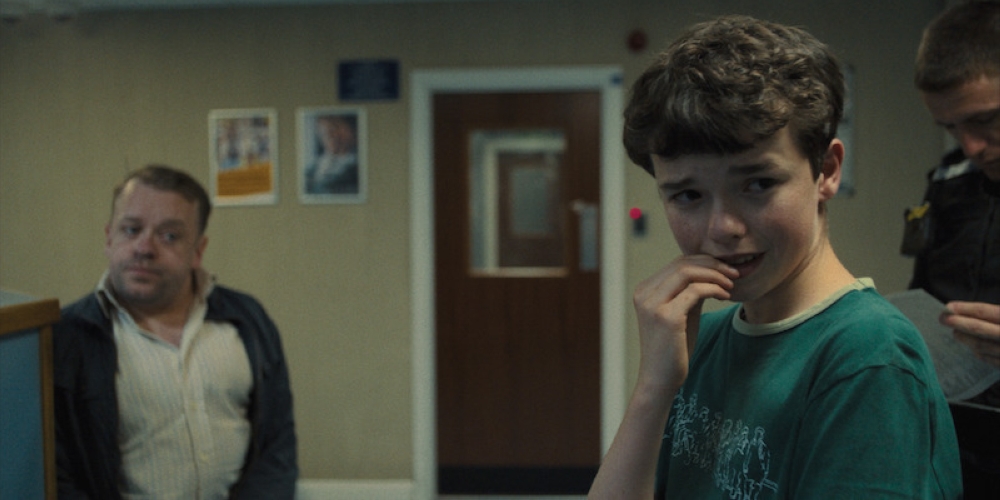APRIL 10 — Warning: Spoilers ahead.
Netflix’s Adolescence was one of the most gripping series I’ve watched in recent memory. And in its wake, the internet has shown me a number of analyses and commentary circling the topics: What is driving boys like Jamie to horrific violence? And what can we do to stop it?
Some — the ones I agreed with more easily — looked at how social media algorithms are targeting young boys and essentially force feeding them dangerous ideas.
Others focused on the role of fathers and the need for boys to be given tools to handle negative emotions like shame and anger.
Then there were the takes that — quite shallowly, in my opinion — boiled it down to patriarchal structures in society and that boys aren’t taught or allowed to accept their feelings.
But regardless of what I agreed with or not, I found one thing missing in the discourse I came across: no one was talking about what a happy future for boys looks like.
There was so much focus on “how do we stop boys from becoming violent towards women? How do we make sure they learn self regulation or self control?”
But little was spent on what I believe is more sustainable: “How do we create boys who are happy, kind, and loving to themselves and others?”
‘Adolescence’, the Netflix hit series about a British 13-year-old boy arrested on suspicion of a horrifying crime, has intensified the anxiety of parents worried about toxic and misogynistic influences young people are exposed to online. — Picture via Facebook/Netflix
Boys were being spoken of like time bombs. They represent danger and we need to learn to defuse them quickly.
I’m no psychology expert, but I think that handling young men this way will likely only create more fear and anxiety in them.
A boy who learns not to lash out isn’t the same as a boy who finds joy in being kind and strength in being gentle.
And if all we aim for is to stop them from doing damage, we’re still falling short of helping boys become whole, joyful people.
As a young child, who grew up around more women than men, I remember listening to these ladies’ grievances and wondering if I too would one day become the men they described: stubborn and sometimes emotionally volatile.
Today, I imagine it’s much worse for a young man. Especially for the ones who are naturally kind, gentle or loving, who may wonder if they’re at risk of becoming these big bad men being talked about constantly and loudly around them.
I disagree that this is the best way for future men to be raised.
Instead, there should be more thought on how to raise boys who are so busy building a life that they can look forward to — that the idea of throwing it all away by, say, murdering a classmate over an insult — wouldn’t ever cross their minds.
I do not mean to snub or mock the plight of women. Men have raped, killed and persecuted our female counterparts for an unforgivable amount of time.
And despite advocacy and reforms in the past century, too little has changed regarding violence.
Women are very justifiably afraid of men, both the ones they know and the ones they don’t. And many men are similarly afraid for the women they love.
There’s a quote on racism from the late boxing legend Muhammad Ali that I think applies here.
In a 1971 interview, he commented on why he doesn’t feel safe around white Americans, despite the argument that “not all white people are racist”.
He said: “There are many white people who mean right and in their heart want to do right.
“If 10,000 snakes were coming down that aisle now, and I had a door that I could shut, and in that 10,000, 1,000 meant right, (that) 1,000 rattlesnakes didn’t want to bite me, I knew they were good… Should I let all these rattlesnakes come down, hoping that the thousand get together and form a shield?
“Or should I just close the door and stay safe?”.
A person who wants to stay safe would not want to expose themselves to a group that has dangerous elements in it — even if there are good people in the same group — especially if it’s not easy to identify who’s good and who’s not.
But, I think that this can only be a short term solution. A horde of snakes, I imagine, would eventually weaken Ali’s door and break it down or create holes large enough to slither through.
So the answer, or at least part of it, is that we need more “good snakes”. We need a much larger and more effective shield.
There’s a whole other conversation to be had here about what a “good snake” actually is. One angle I rarely see people talking about though, is what it looks like when boys and men are not just “good” — but find happiness and fulfillment in being this “good” person.
And for that kind of idea to take root, I believe it has to resonate with boys and men as “this is what we want for ourselves”, not just an idea they feel guilted, or worse, “educated” into.
I’m not saying that it’s wrong for people to be afraid, or that it’s wrong for people to want the needless killing of women to stop now.
But I am saying that it’s a waste of effort if we don’t dig deeper, if we don’t challenge our assumptions and ask better questions.
* This is the personal opinion of the writer or publication and does not necessarily represent the views of Malay Mail.





